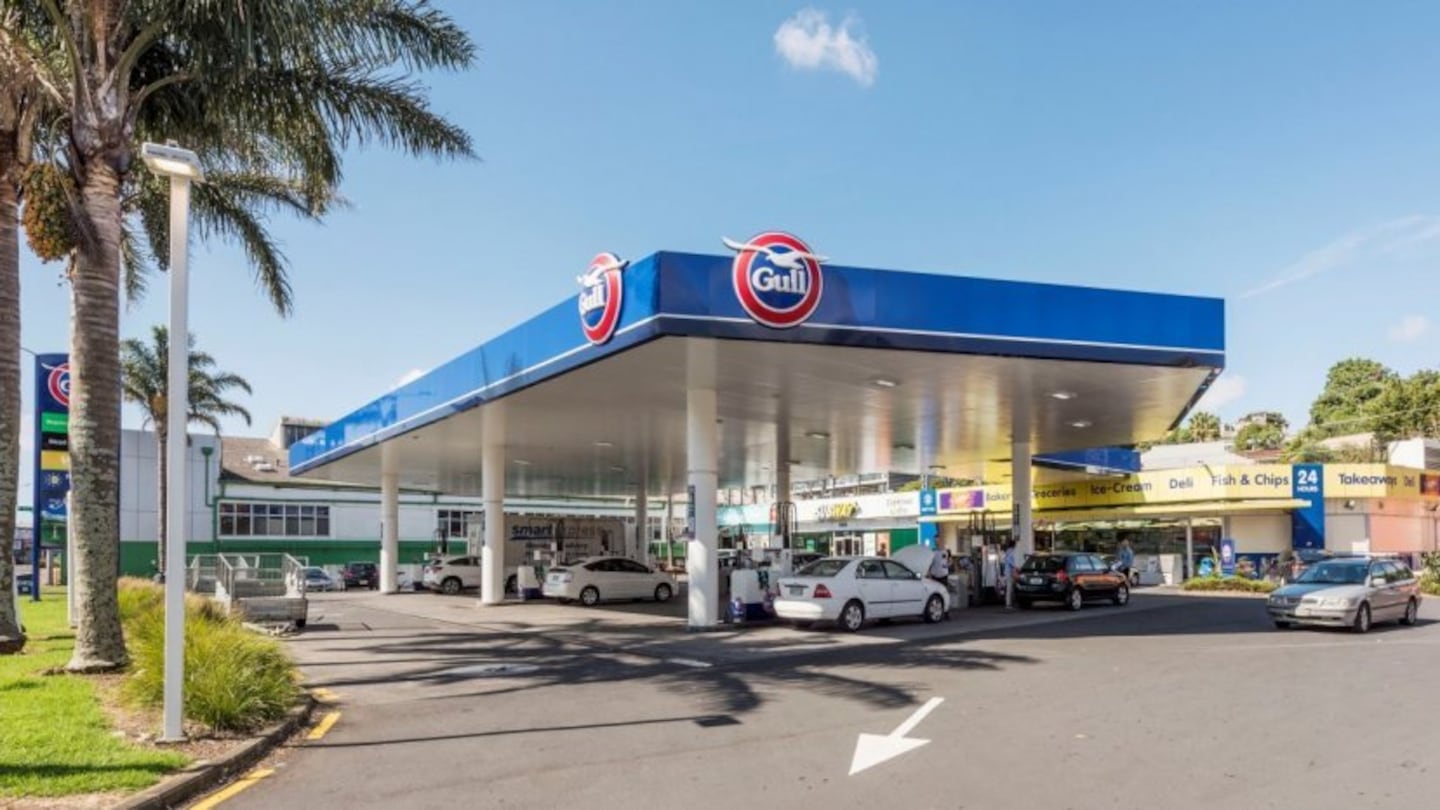Gull's 117 petrol stations and its Tauranga terminal will be co-owned by Tauranga Iwi Ngāi Te Rangi, Australian private equity firm Allegro and another undisclosed Māori business. Photo / NZME/ File
Tauranga iwi Ngāi Te Rangi has announced a major investment in the country’s largest 'independent' fuel retailer, Gull NZ.
Gull owns 117 petrol stations nationwide and its Tauranga terminal infrastructure. Gull was sold earlier this year by Ampol to Allegro, an Australian private equity fund. Ampol wanted to buy Z Energy as well but the Commerce Commission ruled it had to sell Gull in return.
Ngāi Te Rangi is partnering with Allegro and another as-yet-undisclosed Māori entity for shared ownership of a stake in Gull's ultimate owner, which chief executive Paora Stanley says reflects both an investment in the rohe through the import terminal but also strategic alignment with the iwi's broader investment strategy.
“For us, as an iwi, it's an opportunity to diversify our investment portfolio. There are things that Allegro does that we recognise are very similar to what we do, except they have a lot more zeros on the end of them. It's wonderful to be working with people of ilk and mana,” Stanley says.
Ngāi Te Rangi gasses up with Gull.
Strong alignment seen
The iwi won't disclose how much it has invested in the owner company but New Zealand Companies Office records show a limited partnership entity has bought 6.26% of Gull’s ultimate owner company.
Gull developed its reputation as a cut-price fuel retailer with DIY forecourt systems' regular ‘Discount Days’, where it slashes prices often by more than 20c/litre.
“We are delighted to have two key Māori entities as part of our expanding energy business across Aotearoa. Ngāi Te Rangi is one of Gull NZ’s neighbours in Tauranga and will be the lead investor.” Gull NZ general manager Dave Bodger said.
Both Māori entities have strong alignment with Gull NZ’s business through their connection to Tauranga - Gull NZ’s terminal base - and their nearby investments in different energy assets,” Bodger says.
Fuel retailers have posted a surge in profits over the past year as supply constraints of crude oil caused by Russia’s invasion of Ukraine further elevated already rising prices caused by pandemic-related supply chain issues.
In June, BP New Zealand reported a bumper $230 million profit for the 2021 financial year, just weeks after Mobil reported a turnaround in the profitability of its New Zealand business, with a $183m profit after a $159m loss the previous year.
'Important milestone'
Gull’s Tauranga terminal business has become all the more important following the closure of the only oil refinery in Aotearoa, Marsden point, earlier this year.
Allegro Funds managing director and Gull NZ chair Fay Bou said the Māori investment represented an important milestone for Gull and Allegro.
“Since taking ownership of the business in July this year, it has been a key priority to partner with the traditional owners and custodians of the land on which Gull’s operations are located,” Bou said.
“We look forward to working with Ngāi Te Rangi and its leaders to explore opportunities that deepen the partnership, support the local environment and community, and build the business together.”



